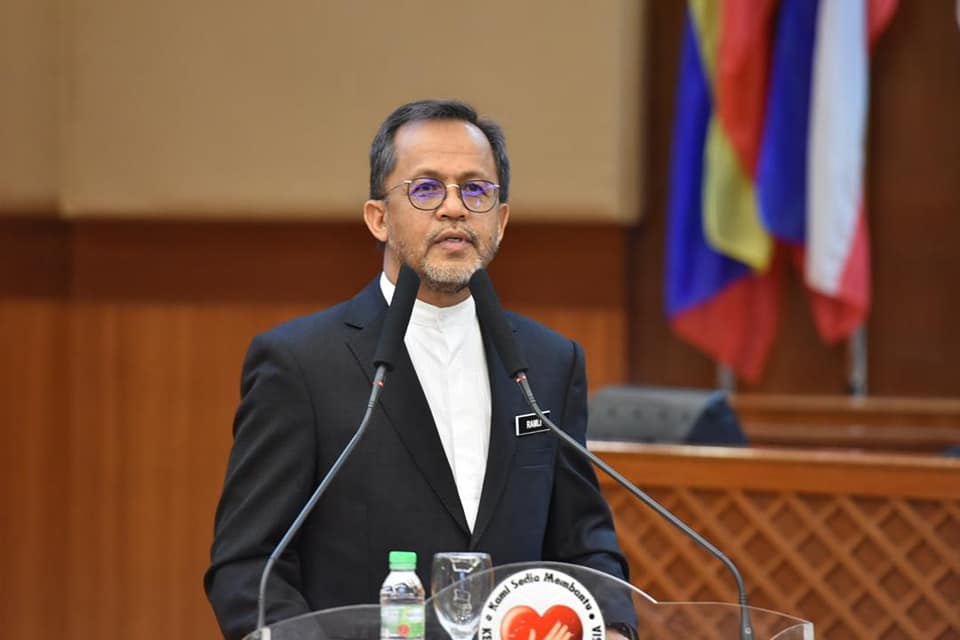KUALA LUMPUR, Feb 25 — Doctors want to see revisions to the Poisons amendment Bill, which proposes to incarcerate them for rejecting patients’ prescription requests, before any health minister tables it in Parliament.
Top Ministry of Health (MOH) officials admitted to doctors’ groups and other stakeholders at a February 13 town hall about the Poisons (Amendment) 2019 Bill that they were in the dark over the proposed changes to the Poisons Act until after CodeBlue reported on it last year.
The Bill would effectively criminalise doctors, dentists, and veterinarians who decline to issue medicine prescriptions requested by patients by sentencing them to maximum five years’ imprisonment, a fine not exceeding RM50,000, or both.
After uproar from the medical fraternity, then-Health Minister Dzulkefly Ahmad last year postponed the second reading of the Bill, and promised to meet with stakeholders to go over the Bill, noting that the incarceration threat could be changed to misconduct or a breach of ethics.
At MOH’s first stakeholder engagement session about the Bill on February 13, Dzulkefly gave dates when the ministry’s Pharmacy Services Programme claimed to have engaged with doctors on the matter. This, however, was rubbished.
“I highlighted that those dates were not actually engagements with doctors,” claimed one anonymous source, insisting that his group was not consulted on the issue at all. “The minister seemed to have been misled.”
Federation of Private Medical Practitioners’ Association Malaysia (FPMPAM) honorary secretary Dr G. Shanmuganathan also said his group was not consulted over the matter, noting that the department quoted dates from a 2015 engagement session instead relating to dispensing separation.
Dr Ramli Zainal, senior director of MOH’s Pharmaceutical Services Programme, pledged that day to rephrase the Bill so that it was more clear that mandatory prescriptions was not something a patient could demand for, but only given after consultation and examination.
But this was far from appeasing stakeholders. Another main grouse that doctors have is that existing laws and guidelines already cover medical practice, such as the Medical Act 1971 and the Private Healthcare Facilities and Services Act 2006 or PHFSA, so there is no need for the Poisons Act to do this as well.
“If there is documentary evidence that show that the two Acts have not been effective, then they need to find a way to fine tune them, rather than coming out with something new,” a third source said.
At the meeting, two suggestions to address the matter were posed by MOH deputy director-general (medical) Dr Rohaizat Yon: backtrack on the proposal and incorporate them into existing laws, or clearly state that they will not affect the medical practice.
The latter option would also clearly stipulate, in the current amendment Bill, that the patient has the right to their prescriptions after being clinically assessed by registered medical practitioners, according to Dr Shanmuganathan.
But nothing was decided on the matter that day, Dr Shanmuganathan and CodeBlue’s two other sources said, apart from MOH officials saying they would discuss the matter internally. This was not enough for the stakeholders who demanded transparency.
“They never gave commitment it (threat of incarceration) would be removed,” one of the two sources said. “Of course, you cannot just buy their words.”
The same source claimed that Dzulkefly then was trying to push the Bill through by this Parliament meeting one way or another. “So, we’re also vigilant. And he knows that without those changes, there’s going to be another (controversy).”
One more stakeholder session will be convened this morning, where the matter is to be finalised once and for all, according to invitations issued by Dr Ramli.
Physicians also don’t want the Bill to expand the powers of MOH enforcement officials to allow them to search private clinics, hospitals, or other premises, and to seize documents if an offence was suspected, which is aimed at catching drug lords and those selling counterfeit medicines.
“Their (MOH) main concern is, ‘How do I demarket it (counterfeit drugs)?’, which is also not easy. (But) our concern is, ‘Hey, don’t put us together with the drug addicts lah. Don’t put us together in the same category with all the smugglers or big mafias at the back’,” said one source.
During the February 13 meeting, Dr Ramli defended the new clauses, however, stressing that the department would be thorough in its pre-raid exercises and catch errant practitioners.
Doctors further raised concerns about the impact of legalising e-prescriptions without a legal framework in place that addresses ethical issues. They said this would lead to over-commercialisation that will not benefit the patients, but private equities and venture capitalists.
The controversy highlights an apparent rift in the ministry, where its top guns are allegedly being kept out of the loop. During the February 13 meeting, a participant remarked that various MOH departments were clearly “not speaking to each other” or working in tandem over the matter.
Stakeholders said this was evident after top-ranking Health director-general Dr Noor Hisham Abdullah said he and then-Deputy Health Minister Dr Lee Boon Chye were not aware of the new changes.
“I am not sure what will happen after this,” said one source, and expressed hope that the ministry would do better from now on in engaging its stakeholders when proposing changes in policy and law that would have an adverse impact on them.
It is unclear if Parliament will continue to meet next month after Prime Minister Dr Mahathir Mohamad tendered his resignation yesterday. Chief Secretary to the Government Mohd Zuki Ali announced the dissolution of Cabinet upon the prime minister’s resignation.
A caretaker government is also unlikely able to pass any Bills in Parliament.








